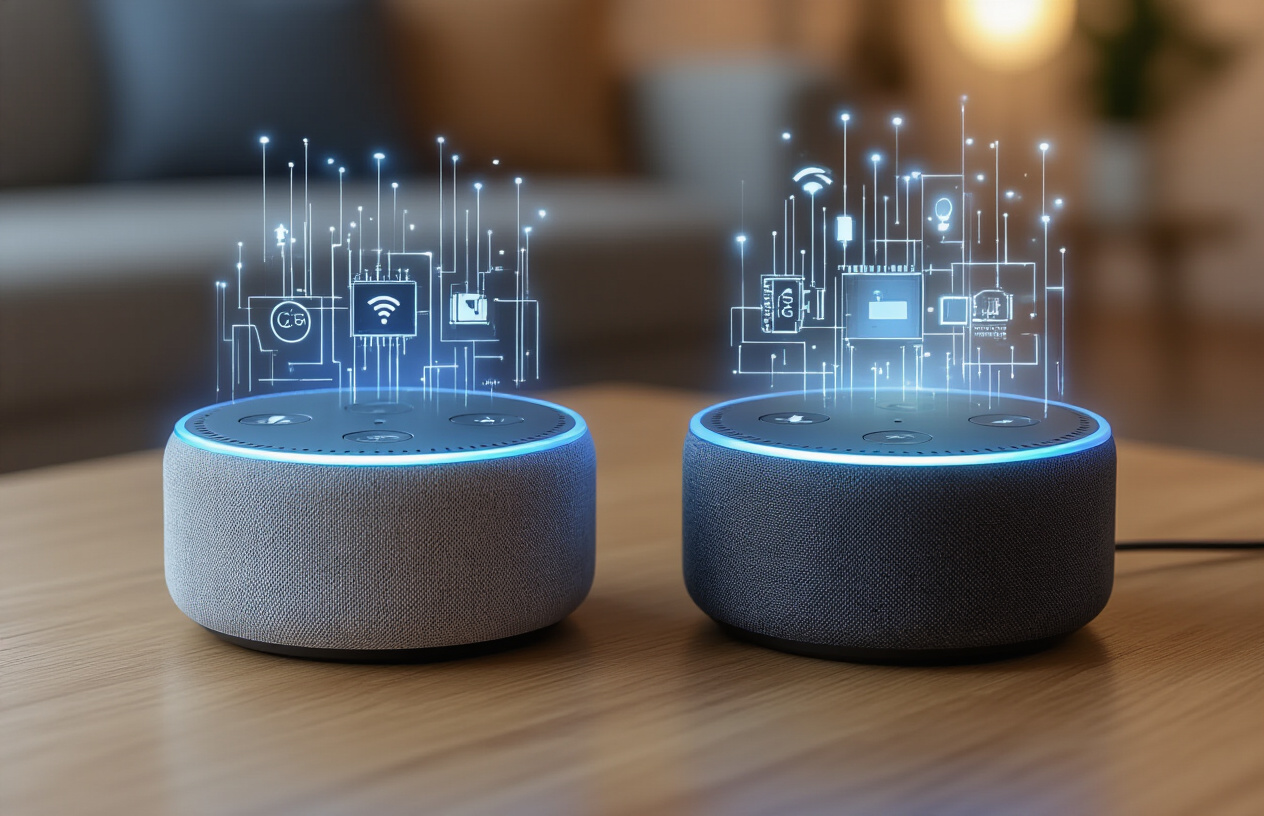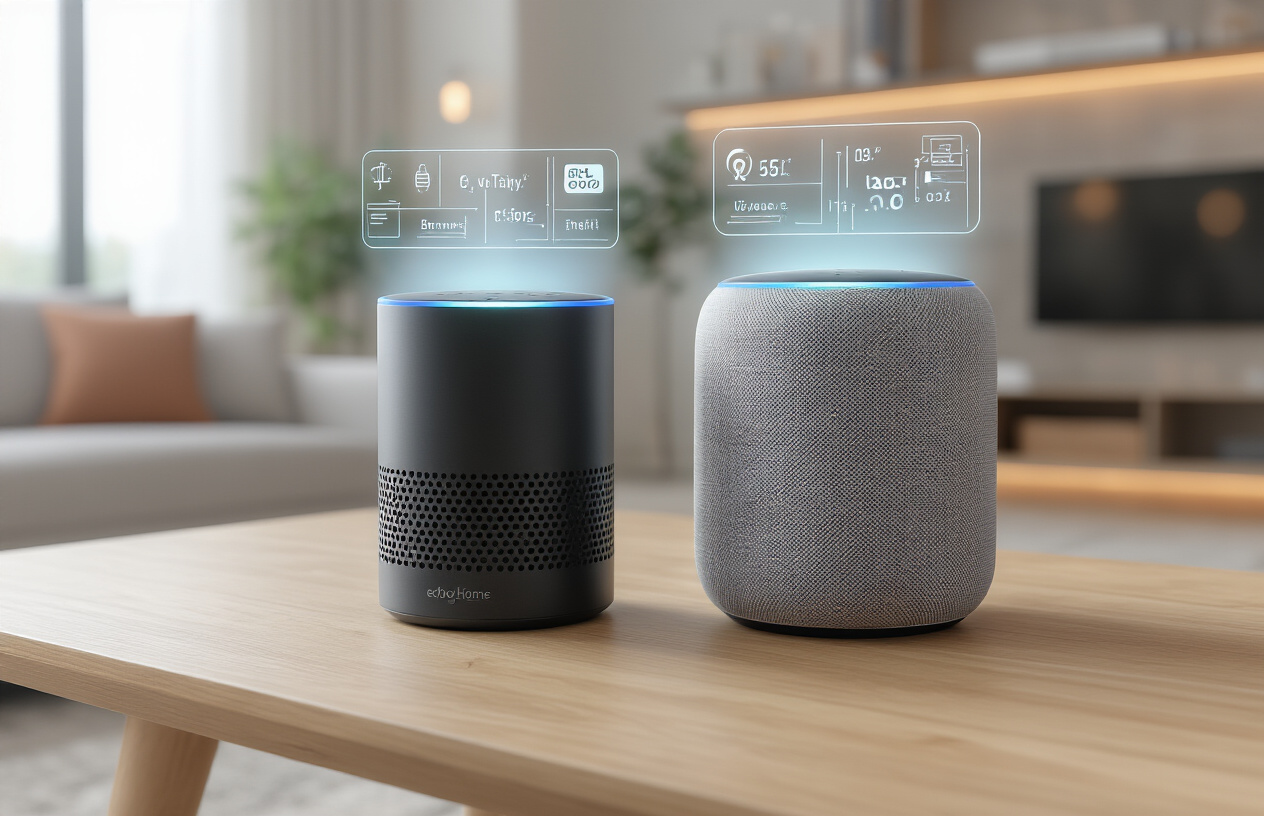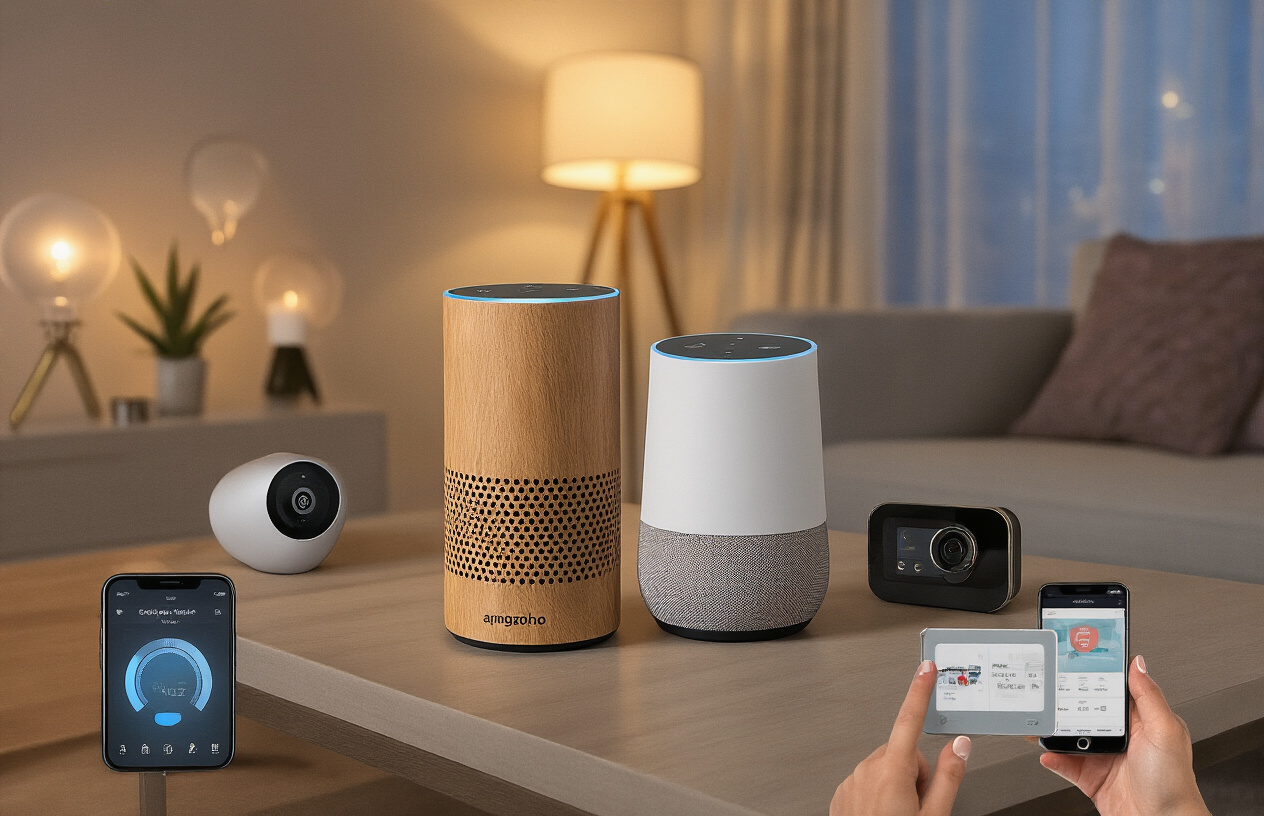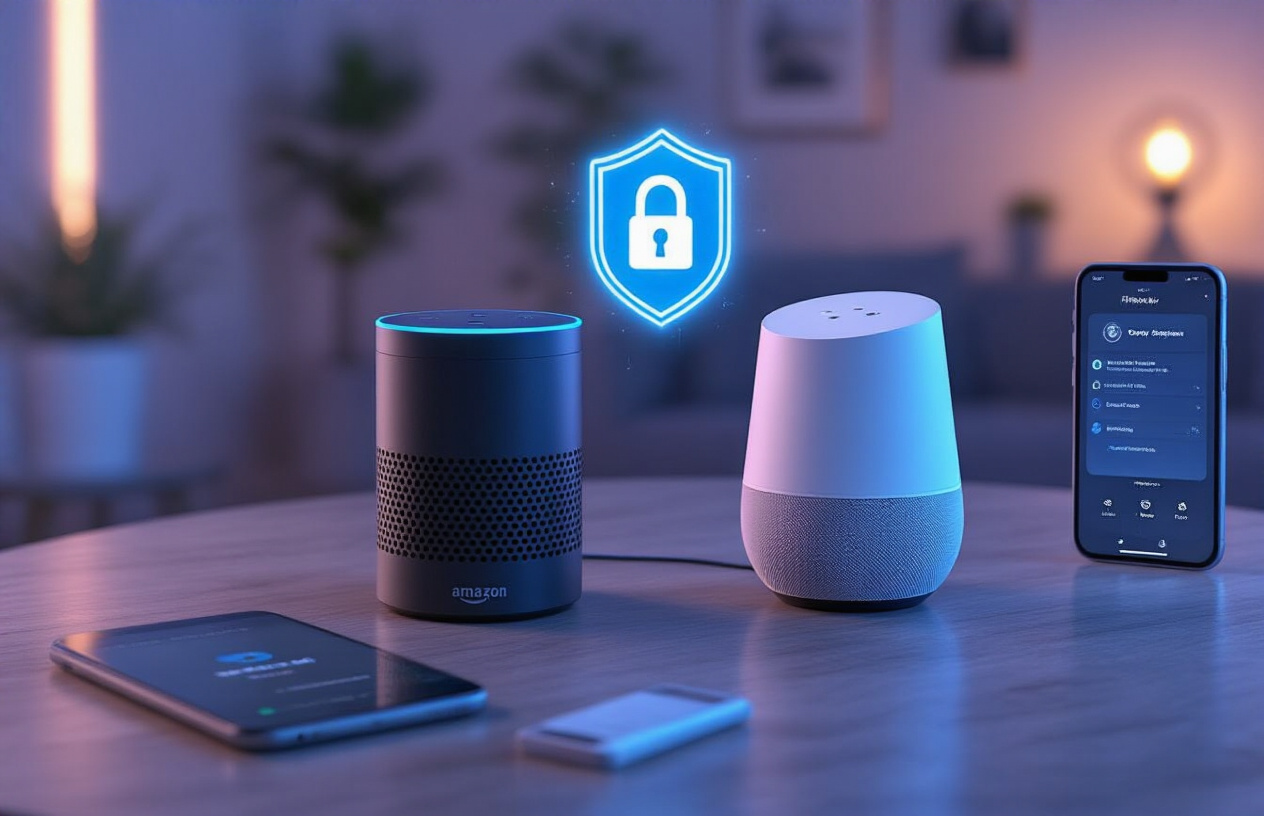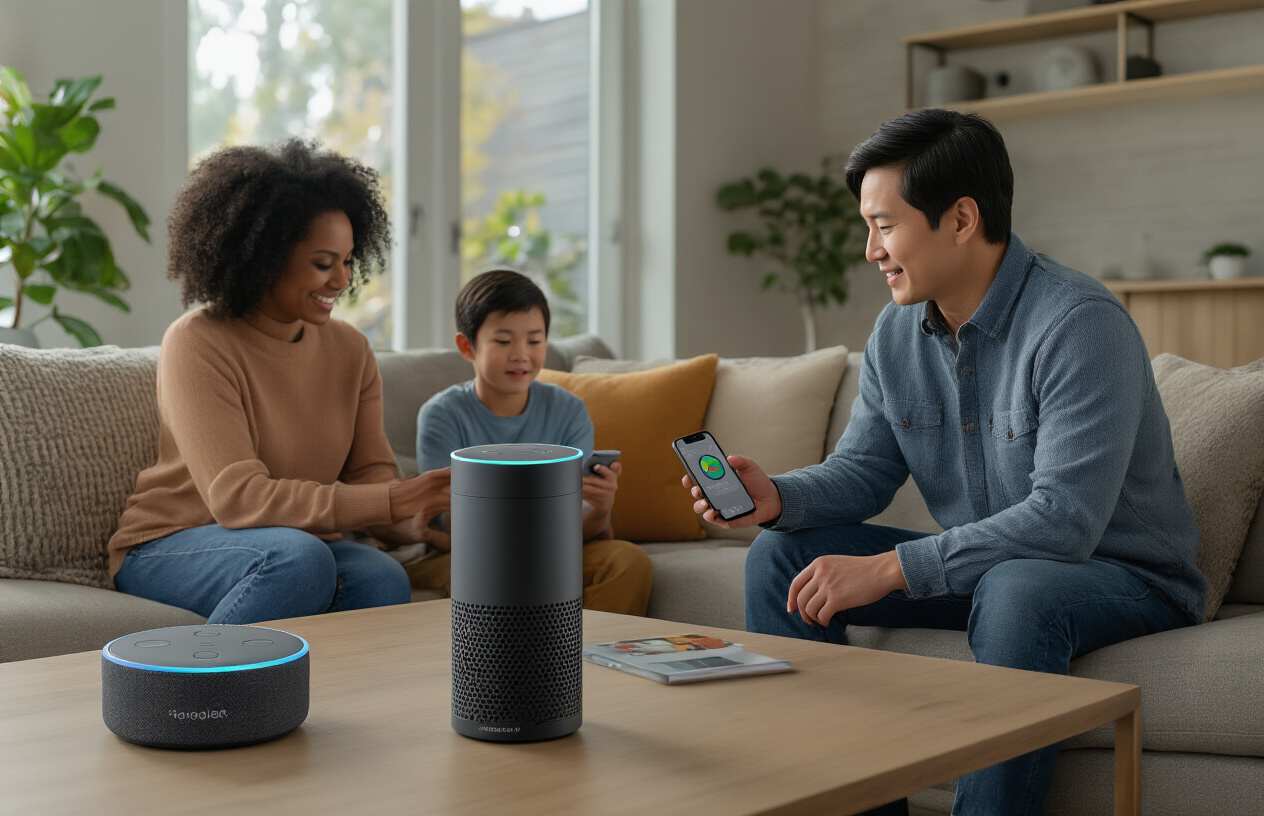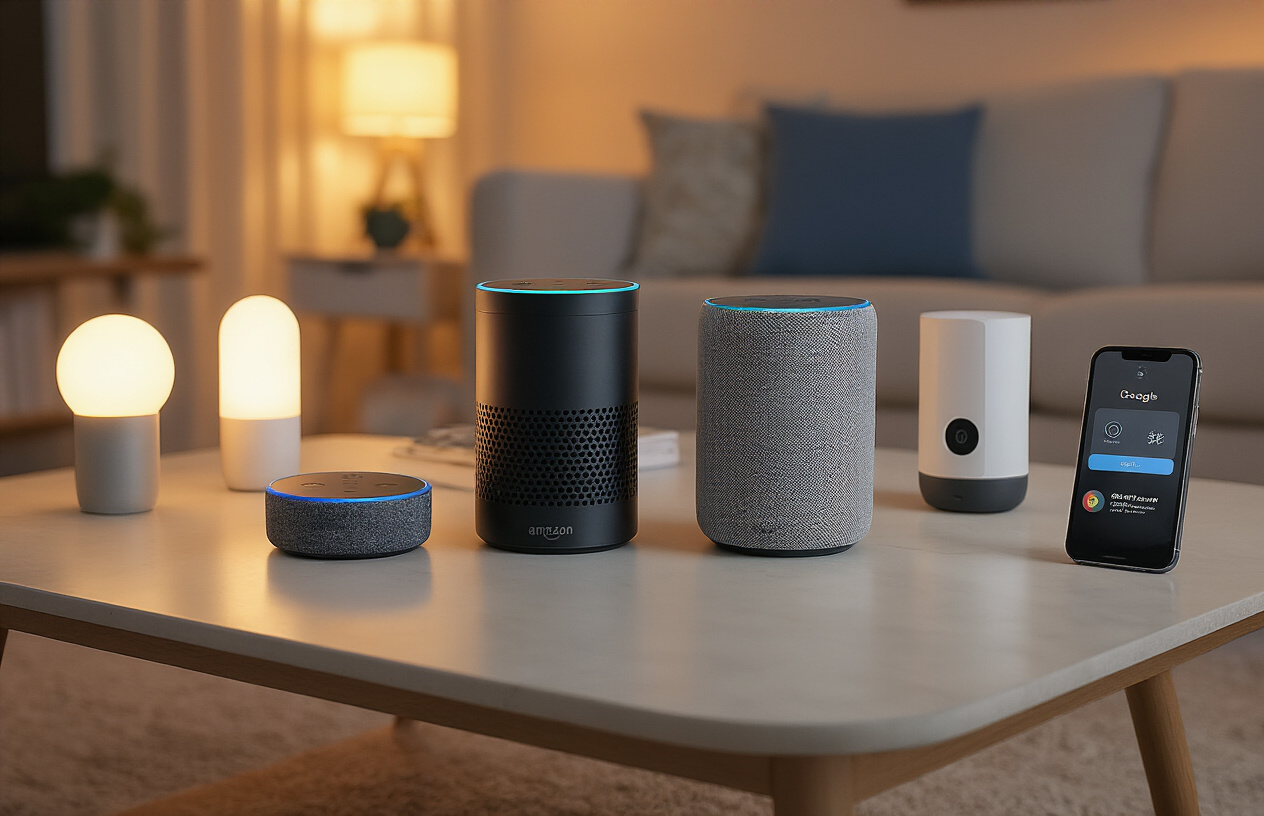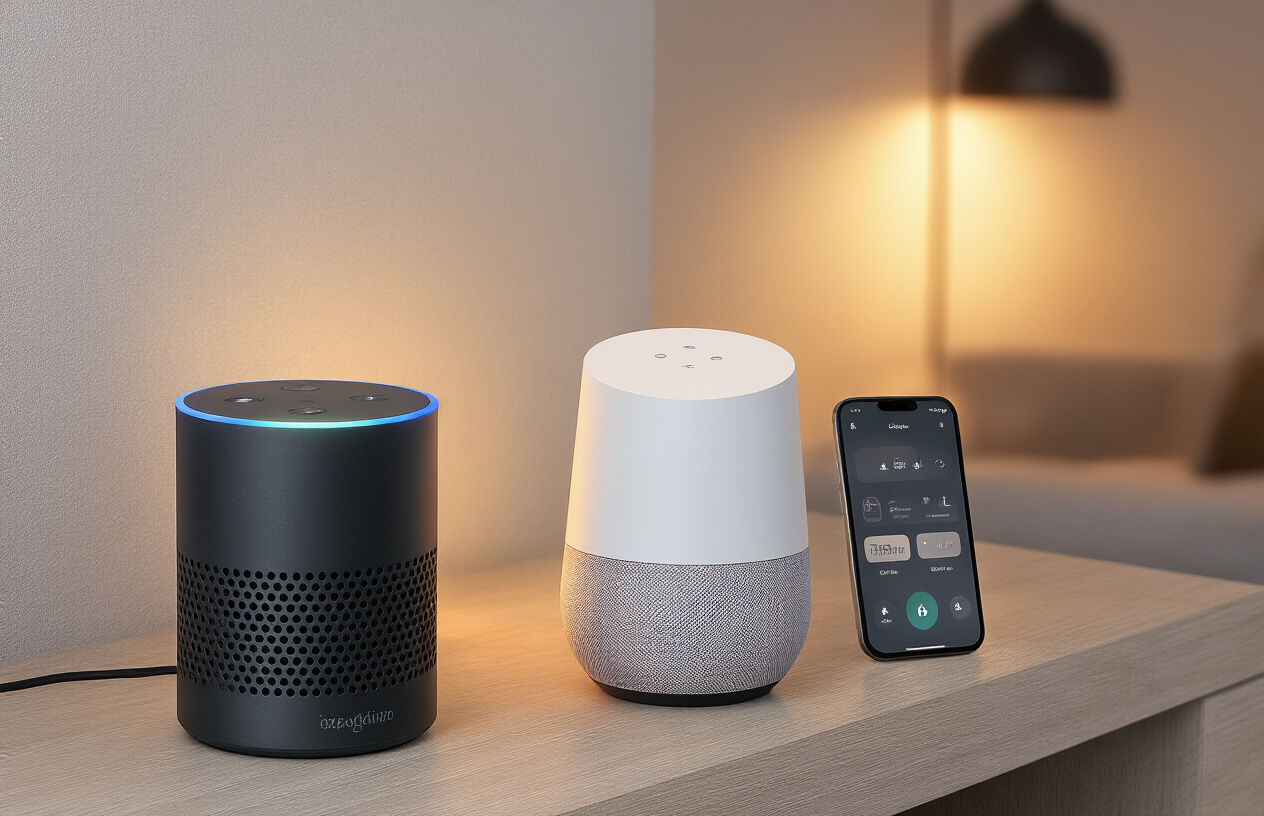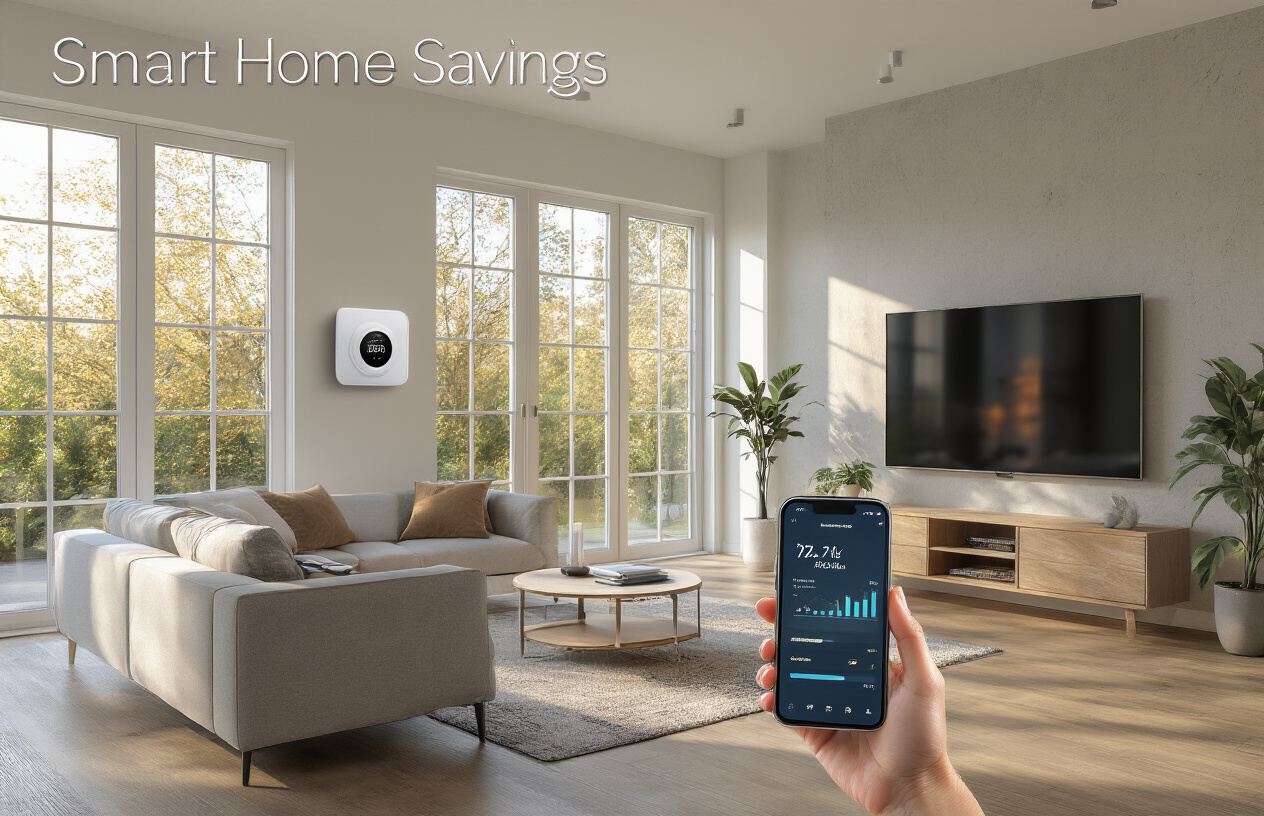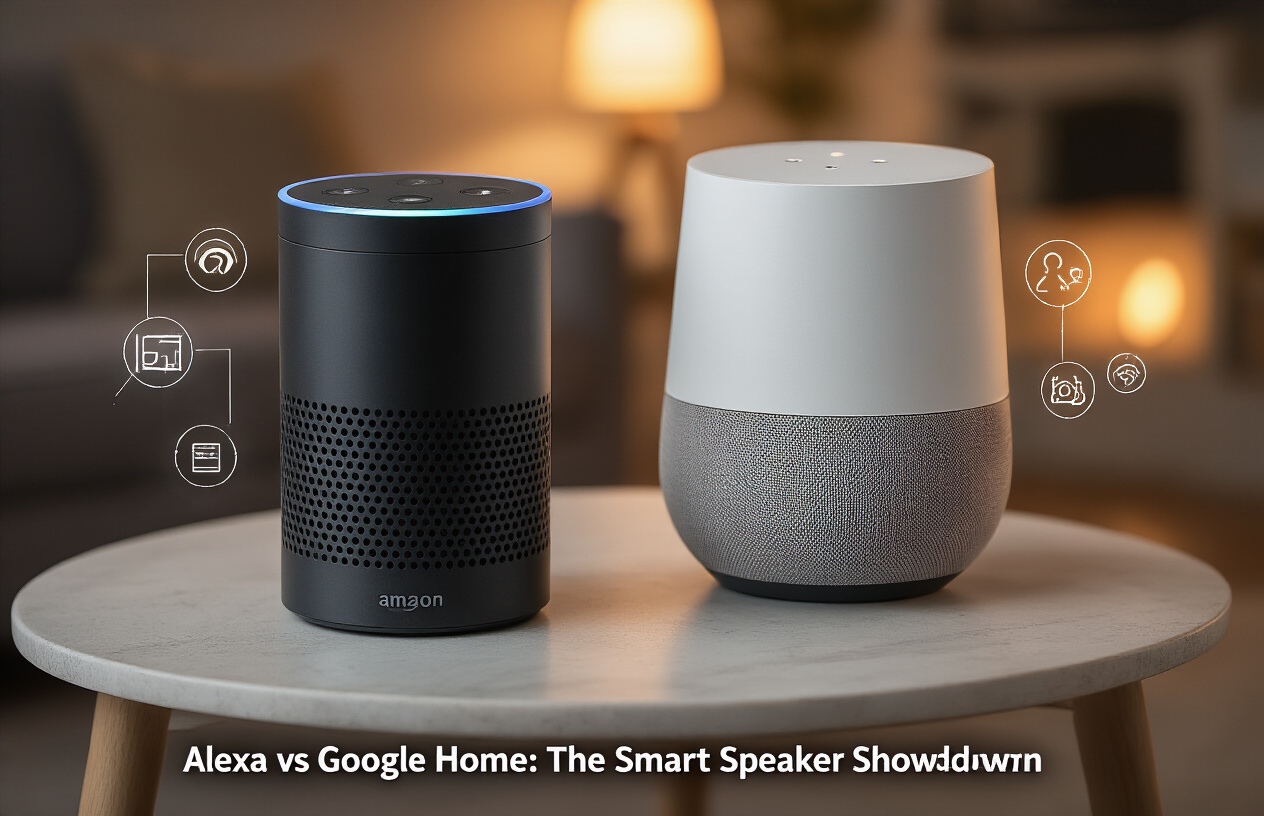
You’re staring at two sleek devices on your shopping cart page, cursor hovering over “buy now,” and the paralysis hits. Alexa or Google Home? It’s like choosing between pizza toppings when both look amazing.
I’ve tested both smart speakers in real homes for over three years, and I’ll tell you exactly which one deserves your hard-earned cash in 2023.
The smart speaker showdown between Alexa and Google Home isn’t just about which plastic cylinder looks prettier on your countertop. It’s about which one actually understands when you’re half-awake mumbling for weather updates.
But before I reveal which assistant made my tech-resistant grandmother exclaim “well I’ll be damned,” let’s look at what you’re really paying for…
The Core Technology: What Powers These Smart Speakers
Voice Recognition Accuracy and Responsiveness
Both devices are listening for your commands, but they hear you differently. Alexa excels in noisy environments, picking up your voice from across the room. Google Home, however, understands natural language better, so you can speak to it like you’re chatting with a friend rather than memorizing specific commands.
AI Capabilities and Learning Curves
You’ll notice Google Home learns your preferences faster thanks to Google’s powerful AI backbone. Your daily routines become second nature to it within weeks. Alexa requires more specific instructions initially but improves as you use it, gradually adapting to your unique speech patterns and requests.
Connection to Other Services and APIs
You can connect your smart speaker to countless services you already use. Google Home works seamlessly with Google’s ecosystem (Gmail, Calendar, Maps), while Alexa boasts over 100,000 skills from third-party developers. Your existing smart home setup might determine which speaker serves you better.
Processing Power and Speed Comparison
Your commands get processed differently on each device. Google Home routes most requests through cloud servers, giving you access to Google’s massive computing power. Alexa handles more processing locally on certain models, resulting in faster response times for basic commands when your internet connection slows down.
Design and Hardware Specifications
Speaker Quality and Audio Performance
When comparing these smart speakers, you’ll notice significant audio differences. The Echo delivers deeper bass with its larger woofer, while Google Home offers clearer vocals for your favorite music. Your listening preferences will determine which sounds better in your living room.
Microphone Range and Voice Detection
You’ll appreciate how both devices can hear you from across the room. Echo’s seven-mic array excels in noisy environments, while Google Home’s two-mic system uses clever software to compensate. Try speaking naturally – both will understand you without shouting.
Smart Home Integration Capabilities
A. Compatible Devices and Ecosystems
Both smart speakers play well with others, but their friendship circles differ. Your Google Home connects seamlessly with Nest products, Chromecast, and Android devices. Alexa excels with Ring doorbells, Fire TV, and boasts over 100,000 compatible devices. Your choice depends on which ecosystem already lives in your home.
B. Setup Process and Learning Curve
Getting your smart speaker working isn’t rocket science with either option. You’ll find Google Home’s setup more intuitive if you’re already using Android or Google services. Alexa might take you an extra minute to configure but offers detailed tutorials right in the app. Both walk you through the process with clear steps.
C. Home Automation Features
You’ll love how these speakers transform your home. Create morning routines where your lights gradually brighten, coffee starts brewing, and you get a weather report—all hands-free. Google excels at answering complex questions, while Alexa shines with its extensive skills library for controlling your smart devices through simple voice commands.
Privacy and Security Considerations
Privacy and Security Considerations
A. Data Collection Policies
Both Alexa and Google Home listen to your conversations, but they differ in how they handle your data. Google is more transparent about what they collect, while Amazon gives you more control to delete recordings. You’ll want to review each company’s privacy policy before deciding which device better protects your personal information.
B. Storage and Processing of Voice Commands
Your voice commands don’t just disappear after you speak them. Google stores your interactions indefinitely unless you manually delete them, while Amazon keeps recordings until you remove them. Both companies use these recordings to improve their services, but you can access and delete your history through their respective apps.
C. Parental Controls and Family Safety Features
Worried about what your kids might access? Google Home offers Family Link to manage children’s accounts and filter content. Amazon’s FreeTime on Alexa lets you set time limits, filter explicit songs, and review activity. Both systems help you create a safer smart home environment for your family.
D. Mute Functions and Physical Privacy Controls
When you need guaranteed privacy, both devices offer physical mute buttons that disconnect the microphones. Google Home shows a visual indicator when muted, while Alexa displays a red light ring. These physical controls give you peace of mind when discussing sensitive topics in your home.
READ: 10 Best Smartwatches for Fitness Lovers in 2025
User Experience and Daily Convenience
Morning Routines and Information Gathering
Your morning routine gets a boost with both speakers. Ask about weather, traffic, and news as you roll out of bed. Google Home excels at answering complex questions, while Alexa shines with customizable flash briefings tailored to your interests.
Entertainment Options (Music, Games, Stories)
Both devices transform your living room into an entertainment hub. You’ll appreciate Google Home’s YouTube integration, while Alexa offers more games and exclusive Audible content. Your music preferences matter too—Alexa works seamlessly with Amazon Music, Google with YouTube Music.
Shopping and Ordering Capabilities
Shopping experiences differ significantly between devices. With Alexa, you’ll enjoy frictionless Amazon ordering—just ask and products arrive at your doorstep. Google Home connects with various retailers but lacks the seamless Amazon integration you might crave.
Calendar Management and Reminders
Managing your busy schedule feels effortless with either assistant. You can add appointments, set reminders, and check upcoming events by voice. Google Home integrates perfectly with Google Calendar, while Alexa works with multiple calendar services for your scheduling needs.
The Ecosystem Factor: Which Works Best For You
The Ecosystem Factor: Which Works Best For You
A. Google Services Integration vs. Amazon Services
Your daily digital habits should guide your smart speaker choice. If you’re deep into Gmail, Google Calendar, and YouTube, Google Home will seamlessly connect with your life. Amazon Echo shines if you’re a Prime member, making shopping and entertainment effortless with just your voice.
The battle between Alexa and Google Home ultimately comes down to your personal preferences and existing tech ecosystem. While both offer impressive voice recognition technology, smart home integration, and daily convenience features, they differ significantly in design, privacy controls, and compatible services. Google Assistant excels at answering general knowledge questions and leveraging Google’s services, while Amazon’s Alexa offers more robust shopping features and a wider range of compatible smart devices.
Before making your purchase decision, consider which ecosystem you’re already invested in, what smart home devices you plan to control, and which privacy features matter most to you. Whether you choose Amazon’s versatile Alexa or Google’s intuitive Assistant, both smart speakers will transform how you interact with your home—making everyday tasks simpler and more convenient with just the sound of your voice.

